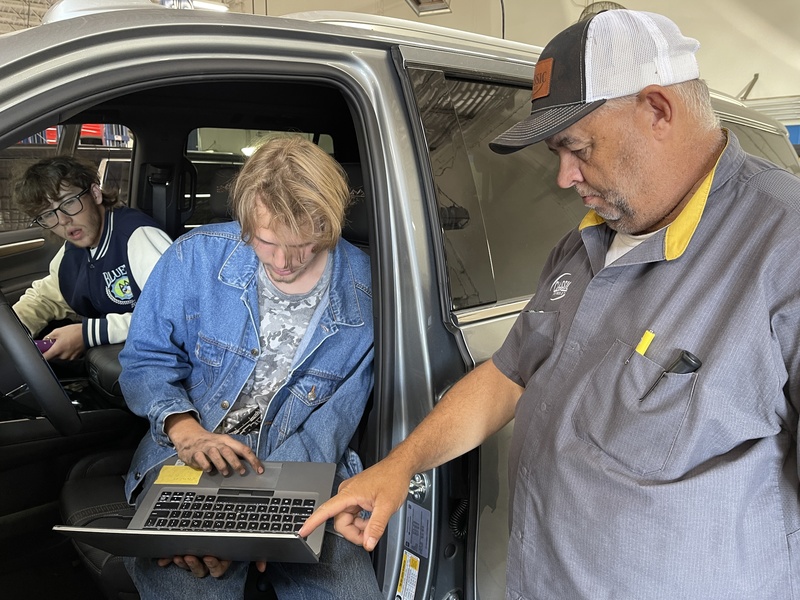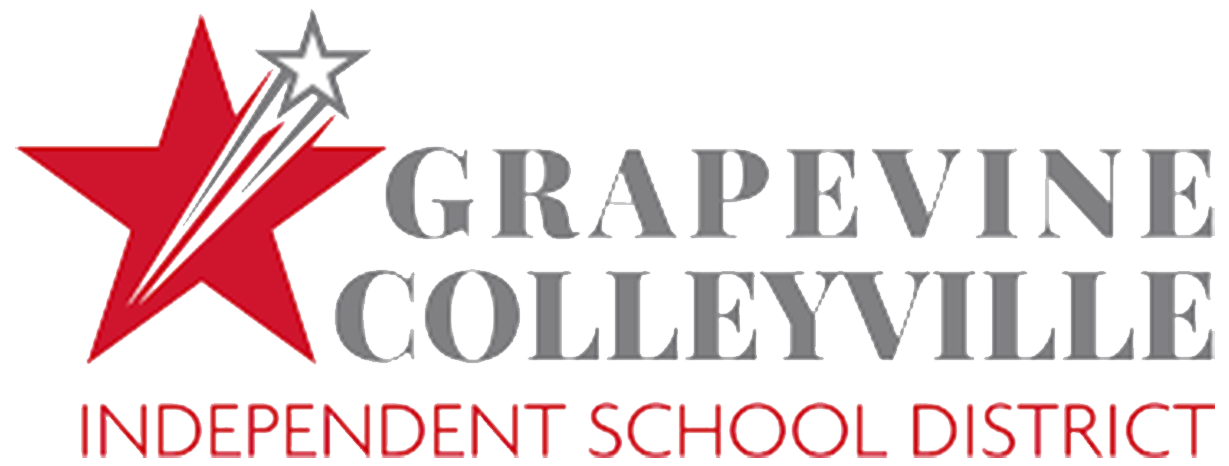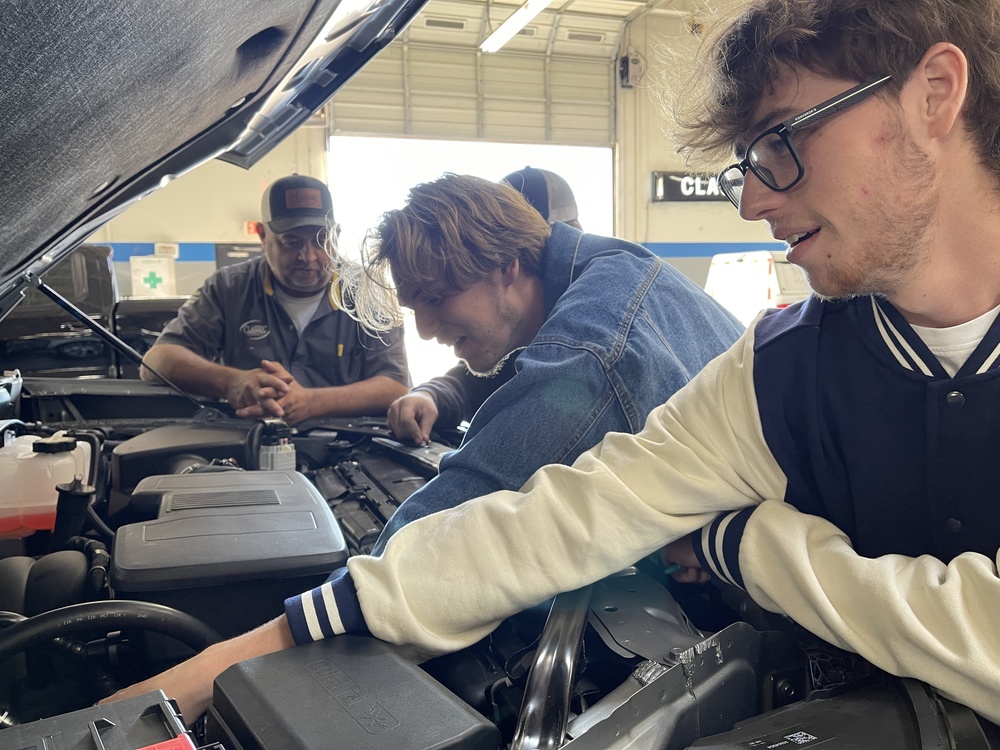A team of three automotive students in GCISD’s Career and Technical Education are gearing up to compete in the 2025 Auto Tech Competition sponsored by the North Texas Automobile Dealers (NTXAD). To help them prepare, the program has partnered with Classic Chevrolet in Grapevine, giving students the chance to train alongside professionals in a real dealership setting.
“It’s exciting,” CTE automotive teacher Chase Swanzy shared. “They are getting in-depth electrical diagnostic experience since all of the newer vehicles are equipped with tech, and that is what the automotive industry is moving toward.”
For students, the partnership is more than just competition—it’s a step toward real-world career readiness. According to NTXAD, there is a national demand for more than 76,000 trained automotive technicians, and programs like GCISD’s can bridge the gap, while providing future careers.
“Ultimately, we want them to like the experience and see them go into this field,” Joe Laubhan, service director at Classic Chevrolet, said. “We have our eyes on GCISD students now.” Laubhan added that with the right training, technicians can build careers quickly. “The great thing about the automotive programs that are now available is that [students] can go to a community college or a tech school that don’t cost nearly as much as a four-year degree.” He further added that he has employed students who, within two years, are making a six-figure income, and that, while not all reach that income level, they are able to make a good living.
Robert Vaughn, the dealership’s shop foreman, explained that the practicum begins by “getting students familiar with how the cars function, which then moves them into learning how to do multi-point inspections.” After that, students learn to identify and troubleshoot problems, skills that they will need for the competition.
As the December 4 and 5 event approaches, the team is training to think and work like professional technicians. During Phase I, the Workstations Challenge tests students’ knowledge of tools, measuring instruments, specific vehicle service information and job interview skills. Phase II, the On-Vehicle Challenge, requires them to interpret, diagnose and repair a number of pre-assigned problems.
The competition mirrors the skills taught in the CTE Automotive program, where students can also earn industry certifications. The pathway begins with a basics class where students learn about tools, engines and how cars operate. Automotive I dives deeper into more advanced systems and then Automotive II focuses on projects such as engine builds and includes a practicum experience.

For Swanzy, the goal extends beyond competition and empowers students with life skills.
“Whether they are interested in going into the auto industry for a living, starting here gives them the basic skills for how to potentially save money by doing some of your own repairs,” Swanzy said. “The goal is to get them to understand that they can work on anything if they can work on this. Or, if they choose to go into the industry, they can also be successful.”

